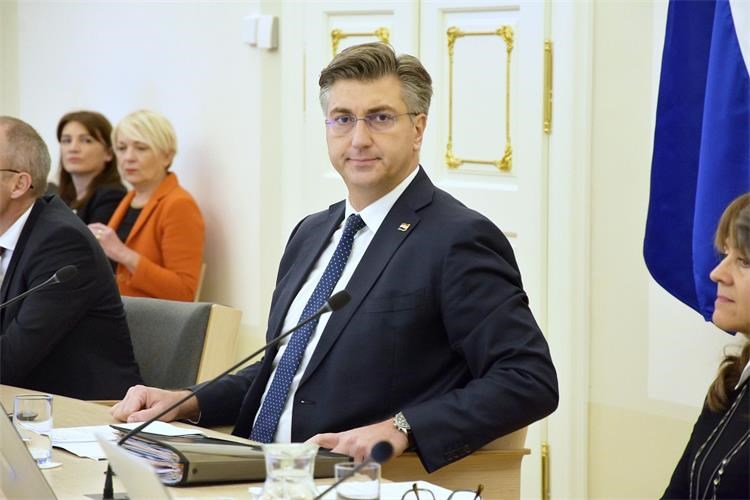- Published: 14.11.2019.
Plenković: When you increase wages by 20% that has to be appreciated
Prime Minister Andrej Plenkovic said on Thursday that the government had offered education-sector unions a very fair proposal within its possibilities and that "when someone increases your wage by 20 percent," had to be appreciated.
"I think that we gave a very fair proposal, consistent and within our possibilities and also in the interest of employees without forgetting the private sector," Plenkovic said at the cabinet meeting on Thursday, commenting on the unsuccessful negotiations with education-sector unions who are continuing striking.
He underscored that during the term of his government, since 2016, an increase of the base wage for state and public services of 11.49% has been secured with an increase of HRK 3.2 billion a year from the state budget allocated for wages.
Being guided by the policy that is on the track of improving the living standard in Croatia, once again through the collective agreement, "which is the main motorway for wage increases," and taking a step backward politically and refraining from reducing the VAT rate by one percentage point, this government has ensured the funds to increase wages in state and public services by a further 6.12%, he said..
Plenkovic said that that meant that wages for employees in the education sector, had increased by 18.3%.
"It would be good for the public to recognise that and for union leaders to recognise that that is a consistent, well-intentioned and open policy that is backed by the logic of a balanced budget. Wages are growing without us having to go into debt or create a deficit," he said.
He underscored that it was the government's prerogative to decide on wage indices and therefore the indices are not the issue for negotiations.
The matter for negotiations is the branch collective agreement which is "that is the road where various supplements are resolved and based on those supplements to branch collective agreements, a lot of people receive significant supplements on their wages," he added.
Plenkovic emphasised that the government's proposal to the unions - signing a supplement to the branch collective agreement amounting to two percent, which would go into effect on 1 July next year if a comprehensive analysis of the regulation on indices is not completed, means that by the end of next year wages won't have increased by 18% but more than 20%.
"When someone raises your wage by 20 percent that is not a little and that needs to be appreciated," Plenkovic added.
He said that as a responsible government, after November 15, the time spent on strike would not be paid as he considers that makes no sense.
Teachers' net wages in September 2016 amounted to HRK 6,359 and at the end of 2020 they will be HRK 7,660 which is an increase of HRK 1,301, he added.
Wages for the same job but as a mentor in September 2016 amounted to HRK 7,210 net and at the end of 2020 they will be HRK 8,656, which is an increase of HRK 1,446.
"We care for education and that is why the education ministry's total budget for 2020 is more than HRK 18 billion and no one can say that we don't care about education," he concluded.
Croatia to hold 1st round of presidential elections on 22 December
The government will today decide to call the first round of the presidential elections for 22 December, Prime Minister Andrej Plenkovic said on Thursday.
The official campaign in the run-up to the first round of the elections will take a fortnight.
The deadlines start running as of 21 or 22 November, Plenkovic said at the start of his cabinet's meeting on the topic of procedural issues.
The second round of the elections is envisaged for 5 January.
In the event that none of the presidential candidates wins more than 50% of the votes on 22 December, the two first candidates will compete in the run-off vote in two weeks' time.
Text: Hina
